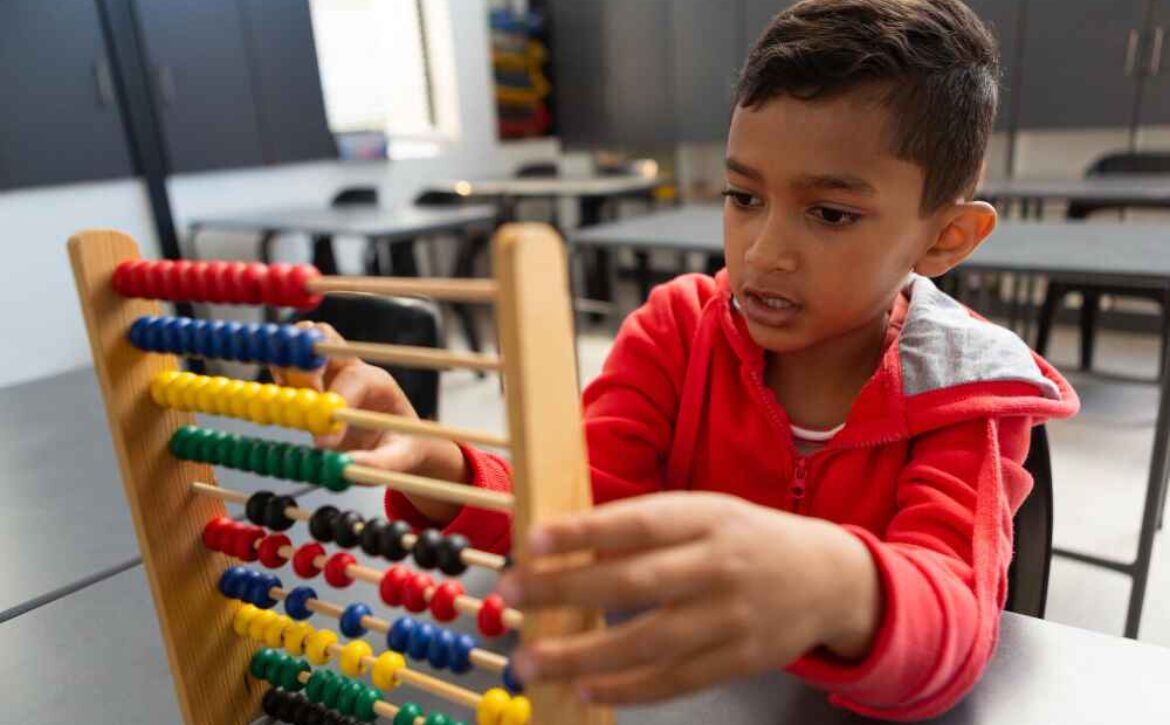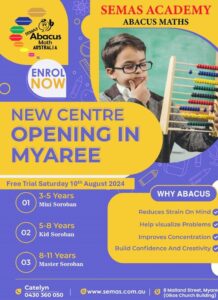Abacus Education: Ancient Skill Shaping Modern Education
The world is ruled by calculators and apps as well as AI. It is surprising to see an ancient wooden frame with beads sliding across wires making a comeback. Yet abacus education is rapidly growing across schools and learning centers globally because it teaches something no device can replace. It teaches mental processing power.
Parents search for nurses every day. They ask what the abacus is about. Does it actually help in real maths? The discussion here breaks down everything. It talks about the tool and technique, along with the mindset it melds, and why abacus learning might be the smartest early investment for the growing brain of a child.
The tool that teaches the mind to calculate
To answer the simple question-what is an abacus, we are here to simplify the basics. It is a counting tool made of rods and beads used to perform arithmetic operations like
- Addition
- Subtraction
- Multiplication
- Division
It looks simple. But hidden inside that frame is a system capable of training the band to complete with incredible speed.
Children who learn the abacus do not rely on the tool forever. They visualize the abacus mentally. They perform calculations in their mind faster than many adults with calculators. That is the power. It is not the frame but the brain behind it.
Why does abacus education matter for the present generation of children?
Some may ask why neither when technology already calculates for us. It is because abacus learning is not just about numbers. It is brain development. Children who practice the abacus show improvement in the following.
- Concentration Attention span
- Mathematical accuracy
- Photographic memory and recall speed
- Logical thought and reasoning
Confidence in academic performance
The beads move, and the fingers tap with the mind sharpening alongside. It may look like simple counting. But it is actually a neural exercise. It is about building cognitive muscle like gym workouts build physical strength.
Abacus maths builds the brain in three ways
The abacus is not silent. It is training.
- Visual processing
Students learn to picture numbers in bead form. It develops imaging skills used later in geometry, along with algebra and even creative thinking.
- Auditory response
Children calculate using verbal instruction only at an advanced level. Their train here number translates to beads, which then gives them the ability to commute instantly.
- Motor memory
The simple movement becomes linked to problem songs. Calculation speed gets faster when fingers move faster.
Minds with ears and hands lead to supercharged mathematical intelligence.
Who should learn the abacus?
The straight-up answer for this would be anyone and everyone. Abacus maths is not just for children who are struggling with maths. It is also for those who excel and want to improve further. Ideal learners include the following.
- Children aged 5–14
- Kids with low concentration
- Kids with short attention span
- Children who are shy or lack academic confidence
- Math lovers who want speed and accuracy mastery
Abacus Learning: A Step Toward the Development of a Genius Brain
By strengthening analytical abilities and fostering autonomous thought, the abacus enables students to learn math with a solid foundation. A child’s focus and creativity get stronger the more they practice. Abacus education equips kids to succeed with confidence in a world where quick thinking and accuracy are important. Semas is one of the most reputable brands in abacus training. If you want your youngster to master math with confidence and intelligence.
How the abacus naturally increases brain power
Abacus learning is much like a mental gym. Children use a variety of cognitive processes. It includes memory recall with focus as well as vision and problem solving. It is when they mentally calculate and move beads.
This organic stimulation creates a sharper added with more active intellect and fortifies brain connections. Kids improve their ability to respond quickly and concentrate with consistent practice.
The basic learning modern educational system
Abacus training develops lifelong cognitive talents, in contrast to digital tools. The abacus is an important component of modern education since it gives pupils an advantage in competitive academics and real-world applications because of their improved attention span, mental agility, and excellent numerical sense.
Final words
An abacus is not just maths. It is brain training with confidence-building and cognitive future-proofing. Semas stands out as a trusted leader in providing the best abacus classes if you are considering where to start. They are known for their structured teaching method, added to the student-first approach. They have a result-driven curriculum and help children develop mental speed, aged with sharp reasoning and a lifelong love for numbers. Their trainers do not just teach. They nurture intelligence. Their interactive programs and proven brain development outcomes have made them rightfully the best place to unlock the full intellectual potential of your child. Semas is the soil where brilliance grows if the abacus is the seed for it.












